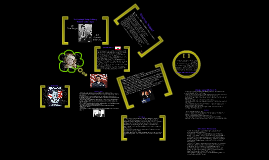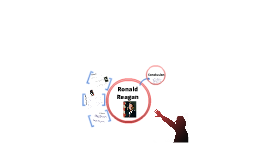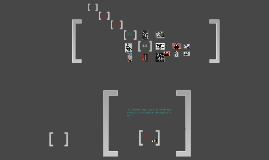Ronald Reagan
Transcript: He felt he had fulfilled his campaign pledge of 1980 to restore "the great, confident roar of American progress and growth and optimism." President Reagan -Disliked traveling abroad ("the highest I want to go is on the saddle of a horse"), but he understood the importance of representing America to form stable relations with other countries as a realist, he understood the world and America's role as the token to freedom for people worldwide -he thought it was crucial to support a demoralized and underfunded Us military, an instrumental factor to ensure peace around the globe and at home as well - he used his position as Commander in Chief well -by the time he left office, the military budget had increased 43% ; along with this, troops, weaponry, and equipment increased significantly and the US intelligance program soon improved however, the enormous amount of money that was put into improving military conditions also contributed to the national deficit during his time in office -he had one well-defined foreign policy goal: to contain the Soviet Union, or the "evil empire" he wanted to finally conclude the Cold War His Secretaries of State, General Alexander Haig and George Schultz, as well as his Secretary of Defense Caspar Weinberger, among others, assisted Reagan in developing this Cold War strategy With Prez. Reagan attended Eureka College to study economics and sociology played on the football team and acted in school plays after graduation, he worked as a radio sports announcer created his own innovative program known as the Reagan Revolution, which aimed to reinvigorate the American people and reduce their reliance upon Government. The Wonderful Foreign Policies of President Ronald Reagan In his last debate with President Jimmy Carter in 1980, Ronald Reagan asked the American public: "Is America as respected throughout the world as it was? Do you feel that . . . we're as strong as we were four years ago?" Throughout the campaign, Reagan made clear his belief that America's international prestige and power had declined drastically over the entire preceding decade. FRIENDS -Reagan and his policymakers, including both his secretaries of state, believed that the United States had national security interests in the region to combat the Soviet influence -At the same time, Reagan's relations with Israeli leader Menachim Begin were less than harmonious and worsened considerably early in the President's first term -in August 1982, Reagan sent 800 U.S. Marines to Lebanon as part of a multinational peacekeeping force that also included French and Italian forces -Their mission was to maintain a cease fire during which PLO fighters in Lebanon would be allowed passage to neighboring Syria. Once the PLO left, Israel withdrew from Lebanon and after the PLO fighters left, the U.S. troops followed in suit -However, after international forces left, Lebanese militia, affiliated with Israel, massacred 700 refugees at two camps in mid-September 1982, so Reagan ordered the U.S. forces back ashore -In April 1983, Lebanese terrorists from a group called Hezbollah—which received financial and logistical support from Iran and Syria—detonated a truck bomb in front of the American Embassy in Beirut -on October 23, 1983, terrorists blew up the Marines' barracks at the Beirut airport, killing 241 U.S. servicemen, most of them Marines -Reagan called it, "the saddest day of my presidency…the saddest day of my life." -In February 1984, the surviving Marines were withdrawn to U.S. vessels waiting offshore. Reagan described the withdrawal as "redeployment," but he would not again send ground troops into Lebanon or any other place in the Middle East. START Reagan won 489 electoral votes to 49 for President Jimmy Carter. -designed to be a national defense network of missiles that could target and destroy any incoming enemy missiles before they reached the United States -unfortunately, prototypes of the seek-and- destroy technology often failed the trial runs miserably -SDI's estimated price tag totaled nearly a trillion dollars -Many Americans also feared that Reagan's conservative Cold War ideology would only lead to war -in 1982, 800,000 Americans rallied in New York City to press the administration to stop creating more nuclear weapons -Reagan denounced these protestors as peace-loving "doves" and continued developing the US weapons arsenal -although the Reagan administration wanted to remain neutral in the Iran-Iraq affair, the US was sending some military equipment to Iran -The Contra part of the affair was the attempt by a small group of National Security Council staff members and former military men to use the profit from the sale of these weapons to the Contra rebels opposing the Nicaraguan government. -On March 4, 1987, Reagan gave a speech saying he took "full responsibility for my own actions and for those of my administration." He went on to say, "A few months ago I told the American people I did not trade arms for hostages.

















